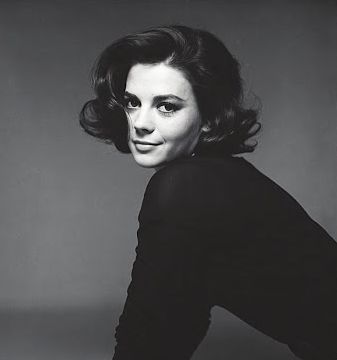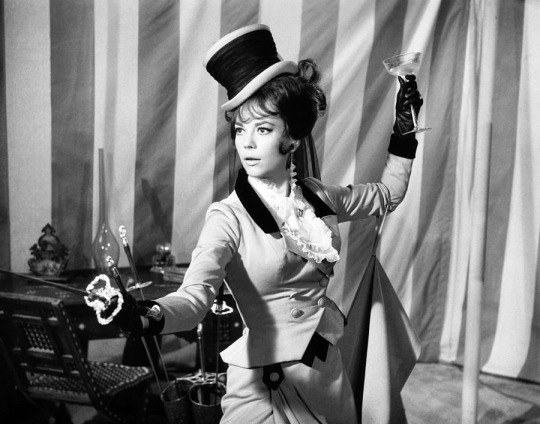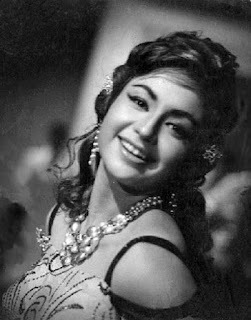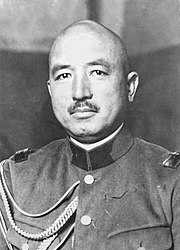#Burma Bridge
Text



#Adventure Sport#Adventure Sports#Extreme Sports#Extreme Sport#Mountaineering#Trekking#Rock Climbing#Wall Climbing#Surfing#River Rafting#Archery#ATV Ride#Balance Rope#Boating#Bungee Run#Burma Bridge#Commando Net#Creera Bharti#Cultural#Cycling#Drum Tunnel#Fashion#Flying Fox#Flying Rope#Horse Ridding#Hot Air Balloon#Monkey Crawl#Mountain Bike#Rope Ladder#Segway
0 notes
Text
Best Post-Punk Albums and Their Resonance with the Concept of Peace
Post-punk, as a genre, has always been about pushing boundaries and challenging norms. It’s a musical movement that emerged from the raw energy of punk and evolved into a more experimental and diverse sound. The genre has often been associated with themes of rebellion, but it also harbors a deep connection with the concept of peace—whether through its anti-war stance, its critique of societal…

View On WordPress
#1970s#1980’s#bauhaus#echo & the bunnymen#Gang of Four#hex enduction hour#in the flat field#John Lydon#joy division#magazine#metal box#mission of burma#music#peace#pink flag#post-punk#public image ltd#punk#real life#remain in light#script of the bridge#seventeen seconds#Sex Pistols#siouxsie and the banshees#suicide#talk talk talk#talking heads#The Chameleons#The Cure#the fall
1 note
·
View note
Text

Jack Jennings was drafted into the British Army and sent to Singapore to fight the Japanese. Weeks later, Britain surrendered the island and Mr. Jennings was taken prisoner / Jennings Family Photograph
A private in the 1st Battalion Cambridgeshire Regiment, Mr. Jennings spent the next three-and-half years as a prisoner of war, first in Changi prison in Singapore and then in primitive camps along the route of the railway between Thailand and Burma (now Myanmar).
As a British prisoner of war during World War II who worked as a slave laborer on the Burma Railway, the roughly 250-mile Japanese military construction project that inspired a novel and the Oscar-winning film “The Bridge on the River Kwai,”
0 notes
Text
#notable deaths#obituaries#deaths (obituaries)#in memoriam#obituary#world war 2#burma railway#bridge on the river kwai
0 notes
Text
Burma 1942: The Japanese Invasion: Both Sides Tell the Story of a Savage Jungle War :: Ian Lyall Grant & Kazou Tamayama

View On WordPress
#0-952-10831-3#battle bilin river#battle pegu#books written by ian lyall grant & kazou tamayama#brewster buffalo aircraft#bridge kala chaung#british military history#burma history#burmese campaigns#colonel harada stuc#curtiss p tomahawks#first edition books#japanese military history#japanese occupation burma#joseph w stilwell#kokkogwa#kyaukse#moulmein#mountain battery regiment#rangoon#seizo sakurai#shwedaung#sing myitnge river#tenasserim#william slim#yenangyaung
1 note
·
View note
Text


Propaganda
Natalie Wood (West Side Story, The Great Race)—She went through so much shit which I know can be said for all these women but Natalie really was a star and her death often overshadows her career and life. She could make you cry, but she also had the capacity to be incredibly funny which I think is lost on people.
Helen (Howrah Bridge, China Town, Teesri Manzil)— Helen might be stretching the definition of "star" a little bit as she was a dancer rather than a leading lady, but her Hotness is absolutely unassailable. She choreographed her own dances, designed her own costumes, overall has a mind-bogglingly wild life story, and survived it all to turn 85 in November. I ADORE her.
This is round 2 of the tournament. All other polls in this bracket can be found here. Please reblog with further support of your beloved hot sexy vintage woman.
[additional propaganda submitted under the cut.]
Natalie Wood:




Helen propaganda:

"Was not technically a leading lady, but played the sexy roles good girls couldn't play, before dying so the hero could marry the good girl. BOLLYWOOD ICON also survived the Japanese invasion of Burma by walking from Rangoon to Assam aged four or five but this is less related to her hotness"


185 notes
·
View notes
Note
You aren't the first to mention it and I'm sure won't be the last, but does everything have to be award worthy to be good? Can't this just be an opportunity for a broader audience to see Sam in a different role and in some cases for the first time? This fandom has a very strange relationship with Sam, he's talked about in a way no one else on OL is. Once Sam was overlooked for his stellar work in those last 2 episodes of season 1, I knew he'd have an uphill battle as the show continued, and he has. I like OL, it's an imperfect to overwrought book series and an imperfect to horrible show (season 4 is terrible) the writing is sometimes garbage and the acting from all 4 leads could be better at times, yes, even Caitriona. I for one hope he's seen by people and cast in something people think he's worthy of. Whatever that means. I watched TCND, it was a good use of my time and quite enjoyable.
Dear Award Worthy Anon,
No, of course not and you definitely have a good point, here. If TCND can be a good opportunity for more people to see S and raise his brand awareness, then of course amen and hallelujah: but will it be so or will it be something more akin to 'oh, almost there, but not quite'? This, only time will be able to sort out, I think, depending (for example) on how many foreign channels will buy it in Cannes (not the Festival, the TV and creative content fairs: MIPCOM, Canneseries and MIPTV). Note to self: write a separate post on these, as the distribution circuit of creative content looks like totally unexplored territory for our fandom.
This fandom has indeed a very strange relationship with S, because he triggered a perpetuum mobile between lust and rejection of his persona, where possession (fantasized, frustrated, denied or sublimated) is the common denominator. I had always said it and now more than ever: this guy has no idea, and maybe if he did, he'd start taking himself more seriously. And I agree with almost all of your comments on OL: despite all these flaws, here we are. Still hanging on, still ogling, still talking. This,*** understood very well, along with another solid sales argument: you don't need GoT's figures to keep the project alive - cult status and an uber invested fanbase is enough.
As I already mentioned, I also hope to see more of S. And I will. TCND is but another step on a bridge like this one I was reminded by coincidence about half an hour ago:

This is the famous U Bein Bridge, near Mandalay, in Burma. As seen and photographed by me, in August 2010. Easily one of my favorite places on Earth.
Thank you for dropping by, Anon! These asks are really down my alley and totally my jam. Don't be a stranger!
36 notes
·
View notes
Text

Fog Over Tolbiac Bridge: A Nestor Burma Mystery
by Jacques Tardi
Fantageaphics
13 notes
·
View notes
Text

Tracklist:
Blue Sky Mine • Stars Of Warburton • Bedlam Bridge • Forgotten Years • Mountains Of Burma • King Of The Mountain • River Runs Red • Shakers And Movers • One Country • Antarctica
Spotify ♪ YouTube
#hyltta-polls#polls#artist: midnight oil#language: english#decade: 1990s#Rock#Aussie Rock#Alternative Rock#Big Music#Pop Rock
11 notes
·
View notes
Text

Hawker Hurricanes attacking a bridge on the Tiddin Rd, Burma. Previous Hurricane bombs can be see bursting on the bridge.
@ron_eisele via X
9 notes
·
View notes
Text
Adventure Sports
Those sports which involve a lot of physical exertion, remarkable speed, unusual heights, and death dangerous stunts are called adventure sports, Sports and games are important for all-round development and are an important part of our routine. Moreover, along with routine education, they help to shape our personalities. Read Speech on Sports and Games.
#Adventure Sport#Adventure Sports#Extreme Sports#Extreme Sport#Mountaineering#Trekking#Rock Climbing#Wall Climbing#Surfing#River Rafting#Archery#ATV Ride#Balance Rope#Boating#Bungee Run#Burma Bridge#Commando Net#Creera Bharti#Cultural#Cycling#Drum Tunnel#Fashion#Flying Fox#Flying Rope#Horse Ridding#Hot Air Balloon#Monkey Crawl#Mountain Bike#Rope Ladder#Segway
0 notes
Text
The Burmese Harp

The Burmese Harp was a film in which I found similarities with Ugetsu. Specifically, the theme of critiquing the military’s use of bushido. This is most obviously present when Mizushima fails to convince the other Japanese troop in the mountain to surrender. Mizushima says blatantly that no good will be done by their deaths and that they are more useful aiding their war-torn country, something that Mizushima will soon dedicate himself to, but for Burma. The refusal of the soldiers to follow Mizushima is exemplary of the notion of honor in death as a warrior, and as we see with Mizushima being the sole survivor of that attack, their death was not honorable. They did not go out fighting, they were simply blown to bits once Mizushima’s time was up. The use of gore in this film was also very interesting. The close-up shots on the rotting corpses of soldiers and the number of piles of numerous dead bodies was something I was not expecting from this film. I believe this also goes to show the lack of honor in death. These men were killed and left to rot and be picked at by vultures. This promise of becoming an honorable warrior in death for Japan’s sake is put on blast, as we see how horrible and pitiful the death of these soldiers really was. Even the sergeant, before coming around to believing that Mizushima could be alive, says that to doubt his death is to dishonor his spirit. This saying that claiming a dead warrior is not truly dead would be disrespectful to the warrior who died honorably in battle.
Despite this critique, I couldn’t help but feel that the movie had a little too much empathy for the oppressor. There was almost no depiction of the crimes committed against the Burmese people, and the Japanese soldiers are all depicted as goodhearted men who only interact positively or neutrally with the native people. After reading more about Burma after the movie, this was certainly not the case in reality, and this depiction is relatively disrespectful to the events that did take place.
However, the overall message of the film is how war can change people, how music can be a powerful force to bridge the canyons created by war, and the duty of people in a postwar environment to ease these inevitable pains. To talk on the first point, Mizushima’s change in the movie is quite linked to nationality. Where he begins as Japanese, with a cheap harp, he slowly becomes one with the Burmese people, and his harp at the end of the movie is very fancy. His realizations of the horrors of war give him empathy with the Burmese people, but he also feels indebted to the Japanese soldiers left behind by their country. He feels he owes it to them to do better for them than their country did, and to do this, must turn to Buddhism and the people of Burma. The theme of music is one that I feel is strong at the beginning but loses its relevance for most of the film up until the end. Music obviously is the source of the comradery of the soldiers, but it also allows them to connect with the English troops at the start of the film too. That image of two opposing forces singing together was a strong one in the film. At the end of the film we see that Mizushima is still connected to his friends through music despite the changes he has undergone and the fact that he must leave them behind. Another gap between people created by war, they will always be connected by the music they shared. The final point about the cycle of war was something exemplified in the opening and closing shots of the landscape. The same quote about the soil and rocks of Burma being red appears, but at the end, Mizushima is there walking into the distance, where he wasn’t before. This cycle of war, blood, and red will always continue, as it seems man is doomed to do, but Mizushima’s purpose is to be there for his fellow man in these times and do all he can to ease that burden. He accepts that this cycle exists, acknowledges how awful it is, and dedicates himself to doing all he can in his power to help in the aftermath.
4 notes
·
View notes
Text
The worst general of the Japanese Army, the demon, Renya Mutaguchi (Logistics-8)

There are three important elements for an army that goes to war. Operations, intelligence, and logistics. If we compare this to a weapon called a spear, the tip would be the operation, the handle would be the logistics, and the arm would be the information. Of course, the tip of the spear should be sharp. Also, the handle that controls supply should be long, and the more accurate the information on the arm, the better.
Here, Lieutenant General Renya Mutaguchi commanded the major operation "Imphal Operation" relying only on the tip of the hat. Imphal is a strategic military center in East India, and by securing it, the line for sending supplies from India to China can be cut. However, Mutaguchi was swayed by the Imperial Headquarters, who believed that it was impossible to achieve victory in this operation, but he obtained permission. He, Renya Mutaguchi, was a person with strong assumptions, and he believed that he had caused trouble for the country as a party to the incident at the Marco Polo Bridge, which was the flashpoint of the Sino-Japanese War, so he bet on the Imphal operation.
What Mutaguchi decided to do was to traverse the rugged terrain of Burma (some mountains were over 3,000 meters high) before the rainy season and capture the British and Indian bases in Imphal. And the battle-hardened soldiers easily captured Imphal. However, the reality was the opposite of Mutaguchi's dream. When the rainy season arrived and they were riding up a steep mountain, Lieutenant General Slim of the British army learned of the Japanese army's intention to attack Imphal from reconnaissance by airplane and adopted tactics to draw the Japanese army deeper into the area. Originally, Japan was a military that procured food locally, and some generals ignored logistics, but there was no typical person like Mutaguchi.
This operation was guaranteed to fail from the beginning. Lieutenant General Slim used the previously mentioned "spear" theory of accurately grasping the information of the Japanese army and forcing them into a difficult situation with logistics and was able to gain superiority in both logistics and information and completely siege the Japanese army. Of the 100,000 participants, the Japanese military lost 30,000 dead in action, 20,000 evacuated due to battle wounds and disease, and more than half of the 50,000 remaining soldiers were sick. ...Most of the soldiers were on the verge of life and death. The route along which the Japanese army fled was littered with corpses, and was nicknamed the ``White Bone Highway''. During that time, Lieutenant General Mutaguchi was resting in the safety of the rear and had no words to say. It is said that among the soldiers, he was nicknamed ``Demon Mutaguchi.''
日本陸軍最低の将軍・鬼畜・牟田口廉也(エッセイ)
戦争をする軍隊に重要な要素が3つあります。作戦、情報、ロジスティックです。これを「槍:やり」という武器になぞらえると、穂先が作戦、柄が兵站、腕が情報となるでしょう。槍の穂先はもちろん鋭いのを良しとします。また補給を司る柄は長いことが良く、腕にあたる情報は正確であればあるほどよい。
ここに、穂先のみにたよって大作戦「インパール作戦」を指揮したのが、牟田口廉也(むたぐち・れんや)中将です。インパールは、東インドにある軍事の要衝で、ここを確保すればインドから中国に物資を送るラインが切断できます。でも、この作戦は勝利を得ることは不可能とした大本営に牟田口は食い下がり、許可を得てしまいます。彼、牟田口廉也は思い込みの激しいひとで、日中戦争の発火点になった盧溝橋事件での事件発生の当事者として、国に迷惑を掛けたと思っていて、このインパール作戦に賭けました。
そこで牟田口が取ったのは、雨季前を、険しいビルマ(3000m級の山もあった)の地形を縦走し、インパールの英・インド基地を奪うというものでした。そして百戦錬磨の兵たちがあっさりとインパールを攻略するというものでした。ところが、現実は牟田口の夢想の逆を行くものでした。雨季になり、険しい山を乗り込んできたとき、イギリス軍のスリム中将は飛行機による偵察により日本軍のインパール攻撃意図を知っていて、さらに奥に日本軍を引き込む戦術を取っていました。もともと日本は食糧は現地調達としている軍隊で、兵站を無視する行動を取る将軍はいましたが、牟田口のように典型的なひとはそうはいません。
2 notes
·
View notes
Text
The Burmese Harp
The Burmese Harp
A heartwarming tale that conflicts with reality is how I would describe this film. It begins following a company of Japanese soldiers a few days after the end of WW2, which they do not know. I applaud this start because it establishes the narrative and tone of the film quickly, and is quite interesting. Many of the soldiers are endearing and the captain is the definition of a leader. Their quirk is that the captain taught his group how to sing in choir together due to being a music college graduate, a very fun aspect of this film. The sincerity of the group's singing and the unique accompaniment of the harp set this film apart from any military film I’ve seen. Mizushima is our main character and he plays a Burmese harp.
Music is something this film is amazing, having my favorite score hands down so far in this class. There are scenes that have left a huge impression on me because of how intense and moving the music can be. An early scene that utilizes narrative music is when the company believes they are being ambushed by British forces, they sing and act joyful to fool their enemy. This is an attempt to make the British forces believe the company did not know they were there. The British sing back, a joyful beautiful song as the British soldiers slowly one by one walk out of their cover hugging one another, the company coming out in confusion. The music builds and the two sides do not fight, and that is when our main characters are informed the war had ended 3 days before. I love this scene and is one of my favorites I’ve seen in this class, it encapsulates the fact that we are all human regardless of our ethnicity or background. Music truly is the bridge to everyone.
I wish I loved the rest of the movie as much, I believe the message is nice in some ways. Mizushima is sent on a mission away from his group where only he survives and is struck with survivor's guilt. The rest of the film deals with his struggle with his guilt and the pain of reuniting with his friends and returning to Japan, which he ultimately decides not to do. He sees his fellow dead soldiers across Japan and it pains him to return home without paying his respects to every one of them, the film really tries to show that every soldier was a regular person with loved ones. And it is right in a way, there is a difference between the soldier and the country. It can even show how radicalized a soldier can be for their country when the Japanese soldier decided to die for their country. I find it hard to feel sympathy because they aren’t dying to protect their country, they are literally invading Burma. This is their country's fault for where they are…It's a good film with very good moments between the main cast of characters.

2 notes
·
View notes
Text
The Burmese Harp
Kon Ichikawa's The Burmese Harp was a neat film with themes involving the cruelty of war and brotherhood among soldiers. It starts off by showing a group of Japanese soldiers, who like to sing and play music, that are partaking in the Burma campaign. Eventually they are caught by British and Indian soldiers, where they soon find out that the war has already ended. After their capture, one of the soldiers, Mizushima, is sent to talk down another group of Japanese soldiers who are holding down a mountain. He fails, the mountain gets bombarded and he is the only survivor. A monk then takes Mizushima and helps him recover. Mizushima later steals his robes and tries to become a monk. During this time, his fellow soldiers are worried for him. Crossing a bridge they see a monk resembling Mizushima, but when they say his name he does not respond, leading them to believe it must have been someone else. As Mizushima walks towards Mudon to where his company was sent, he finds the corpses of many Japanese soldiers. Here is when Mizushima decides that he must stay in Burma, although we as the audience are not directly told this until the very end of the film when the troops are reading Mizushima's letter. Mizushima, clearly horrified at the scene of the many dead soldiers, turns back and this is where he encounters his friends while crossing a bridge. This was a very clever scene that was shown twice, first from the perspective of the troops, and then from Mizushima's perspective. Seeing it from his point of view makes you wonder why he is ignoring his comrades, but when we see captain Inouye look into the box left by Mizushima at the repository of the dead, there is a single ruby inside of it. Mizushima found it earlier and after being told that it represented the spirit of the dead Japanese soldiers, he put it in the box, signaling the start of his mission. It was very moving seeing the troops try to find Mizushima through singing and a parrot, especially when they finally find him and share a moment singing while he plays the harp.
On another note, this film definitely dances on a line when showcasing the presence of Japanese troops in Burma. There is an argument to be made for the film making light of the Japanese invasion, especially when the group of Japanese soldiers seem sweet and pleasant through their song and banter. I don't think the intention was to whitewash, but more so to demonstrate that soldiers in the frontlines were just regular people, drafted into war to further the vision of their government. This doesn't necessarily describe the entirety of the Japanese military, and Ichikawa shows this in the way he presents the intensity of the group of soldiers holding down the mountain. With that being said, The Burmese Harp was a great film and I can see why it was nominated in the Academy Awards of 1956.

2 notes
·
View notes
